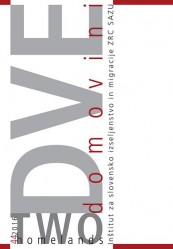The assessment of cultures and the autonomy of communities
DOI:
https://doi.org/10.3986/dd.2016.2.03Keywords:
Kymlicka, liberalism, multiculturalism, cultural minorities, colonialismAbstract
Cultural rights are one response to the mistreatment of minorities by dominant groups. Their protection has become a litmus test for the liberal nature of democratic states. At the same time, criticisms of cultural rights abound in scholarship and popular discourse. These include concerns that cultural rights distort and essentialize culture, that cultural protections shield gender discrimination, and that cultural rights legitimize a false narrative about the capacity of Western states to act justly towards subjugated minorities and, in particular, indigenous peoples. The question addressed here is whether the protection of cultural rights, as defended by Kymlicka in his 1989 book Liberalism, Community and Culture, is still an important project today in light of these criticisms and against the background of recent political circumstances which find some political leaders distancing themselves from multiculturalism and where, once again, cultural difference is used to exclude minorities from the full rights of citizenship.
Downloads
References
Asch, Michael (2014). On Being Here to Stay: Treaties and Aboriginal Rights in Canada. Toronto: University of Toronto Press
Bouchard, Gérard and Taylor, Charles (2008). Report of the Commission on Accommodation Practices Related to Cultural Difference. Unabridged. Quebec: Government of Quebec.
Brown, Wendy (1995). States of Injury: Power and Freedom in Late Modernity. Princeton NJ: Princeton University Press.
Carens, Joseph (2000). Culture, Citizenship and Community. Oxford: Oxford University Press.
Coulthard, Glen S. (2014). Red Skin, White Masks. Minneapolis: University of Minnesota Press.
Deveaux, Monique (2006). Gender and Justice in Multicultural Liberal States. Oxford: Oxford University Press.
Eisenberg, Avigail (2009). Reasons of Identity. Oxford: Oxford University Press.
Forst, Rainer (1997). Foundations of a Theory of Multicultural Justice. Constellations 4/1, 63–71.
Kymlicka, Will (1995). Multicultural Citizenship. Oxford: Oxford University Press.
Kymlicka, Will (1998). Finding Our Way: Rethinking Ethnocultural Relations in Canada. Toronto: Oxford University Press.
Ruggiu, Ilenia (2012). Il guidice antropologo. Consituzione e tecniche di composizione dei conflitti multiculturali. Italy: Franco Angeli.
Ruggiu, Ilenia (2016). Is begging a Roma cultural practice? Answers from the Italian legal system and anthropology. Romani Studies 5, 26/1.
Shachar, Ayelet (2001). Multicultural Jurisdictions. Cambridge: Cambridge University Press.
Taylor, Charles (1985). Atomism, Philosophical Papers Vol. 2: Philosophy and the Human Sciences. Cambridge: Cambridge University Press.
Tully, James (1995). Strange Multiplicity. Cambridge: Cambridge University Press.
Waldron, Jeremy (2000). Cultural Identity and Civic Responsibility. Citizenship in Diverse Societies (eds. Will Kymlicka, Wayne Norman). Oxford UK: Oxford University Press, 155–174.
Weinstock, Daniel (2006). Is “Identity” a Danger to Democracy? Identity, Self-Determination and Secession (eds. Igor Primoratz, Aleksandar Pavković). London UK: Ashgate, 15–26.
Young, Iris Marion (1989). Polity and Group Difference: A Critique of the Ideal of Universal Citizenship. Ethics 99/2, 250–274.
Downloads
Published
How to Cite
Issue
Section
License

This work is licensed under a Creative Commons Attribution-NonCommercial-NoDerivatives 4.0 International License.
Authors guarantee that the work is their own original creation and does not infringe any statutory or common-law copyright or any proprietary right of any third party. In case of claims by third parties, authors commit their self to defend the interests of the publisher, and shall cover any potential costs.
More in: Submission chapter





